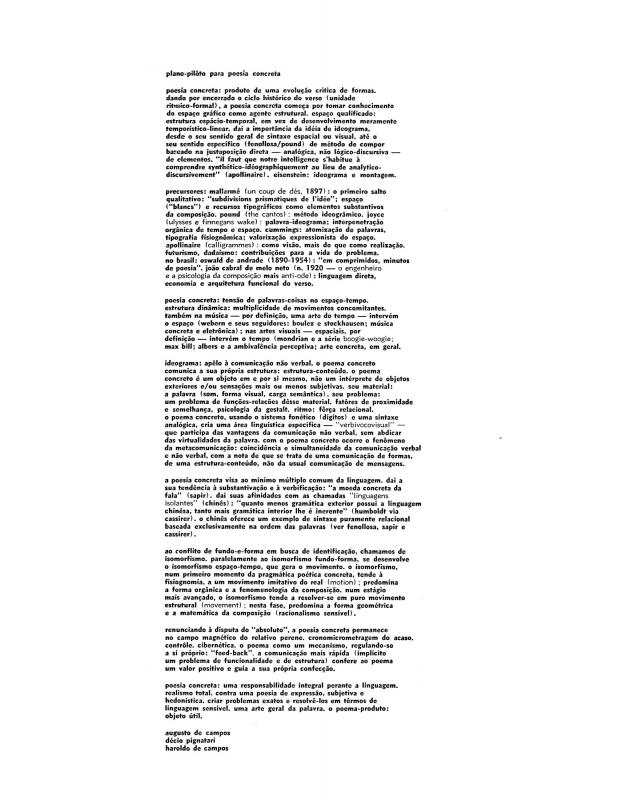Roberto Pontual made a name for himself in Brazil when he organized the exhibition América Latina: geometria sensível in 1978 at the MAM-Rio de Janeiro. He was the director there at the time, and thought he detected a certain “baroque” quality in the constructive art being produced in Latin America. Pontual was always interested in the presence of a Brazilian “identity” in the work of Brazilian artists with which to counter—to some extent at least—the suffocating unification of international art. In Explode Geração! [Explode, My Generation!], the book he published in 1984, he claims to be able to detect that sense of identity in the art that was being produced in Brazil in the 1980s, the generation of artists that included Mónica Nador and Ana Tavares in São Paulo, and Leda Catunda, Sérgio Romagnolo, and Beatriz Milhazes in Rio, in whose work he sees a connection to the baroque style of Minas Gerais.
This document was signed—at the conclusion of the Semana Nacional de Poesia de Vanguarda —by the following art critics: Frederico Morais, Márcio Sampaio, and Olívio Tavares de Araújo, in addition to Pontual; the writers Affonso Ávila and Benedito Nunes; and the poets in the Concrete group Noigandres Décio Pignatari, Augusto de Campos, and Haroldo de Campos, among others. The manifesto clearly outlines a plan of action that accepts the avant-garde’s guidelines inspired by social commitment, using the media as a means to reach the general public.
The Semana Nacional de Poesia de Vanguarda was an extremely important art event that sparked a ground-breaking conversation in Minas Gerais about the scope of the avant-garde as articulated by the local press and art critics. It took place in 1963 (August 14–20) at the Rectoría de la Universidade Federal de Minas Gerais, in Belo Horizonte. It consisted of a series of lectures, debates, and poster-poems presented by the group associated with the magazine Invenção (ex Noigandres) from São Paulo and the Tendência, Vereda, and Ptyx groups from Minas Gerais, as well as poets from other states.
It is appropriate to contrast the ideas presented two years earlier by the members of the Concrete poetry group (Noigandres or Invenção) in their “Plano-pilôto para poesia concreta”, published in 1961 [see doc. no. 1090135]. It thus comes as something of a surprise to note their agreement with Pontual’s manifesto in Belo Horizonte, which stressed ideas that seem at odds with their poetics, such as the socio-political and emancipatory function of poetry.

